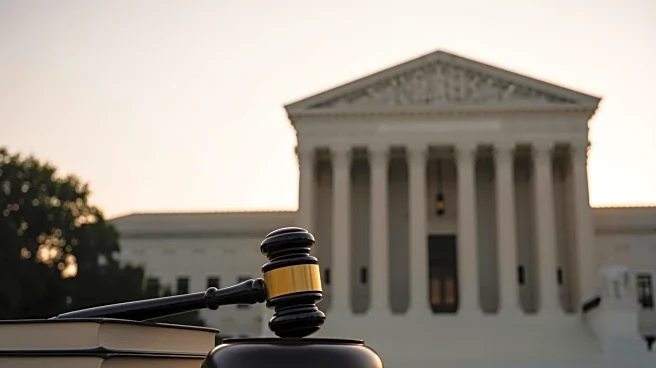What's Happening?
Supreme Court Justice Sonia Sotomayor expressed concern over the court's decision not to review the case of Stacey Humphreys, a Georgia man convicted of murder, who claims juror misconduct influenced his
death sentence. Humphreys' legal team argued that a juror's past experience with crime led to bias, affecting the trial's outcome. Despite these claims, the Supreme Court denied certiorari, leaving the conviction intact. Sotomayor, joined by Justices Elena Kagan and Ketanji Brown Jackson, dissented, highlighting the potential violation of Humphreys' right to an impartial jury.
Why It's Important?
The decision underscores the Supreme Court's stance on procedural issues related to juror misconduct and the death penalty. It raises questions about the balance between maintaining verdict stability and addressing potential biases in jury decisions. The case highlights ongoing debates about the fairness of the legal system, particularly in capital punishment cases, and the challenges defendants face in overturning convictions based on juror behavior.
What's Next?
With the Supreme Court's refusal to hear the case, Humphreys' legal options are limited. The focus may shift to legislative or advocacy efforts to address juror misconduct and its impact on trial outcomes. The case could influence future discussions on legal reforms aimed at ensuring fair trials, especially in death penalty cases.
Beyond the Headlines
The case brings attention to the ethical and legal implications of juror misconduct and the no-impeachment rule, which restricts the use of juror testimony to challenge verdicts. It highlights the tension between legal finality and the pursuit of justice, particularly in cases involving severe penalties like the death sentence.









